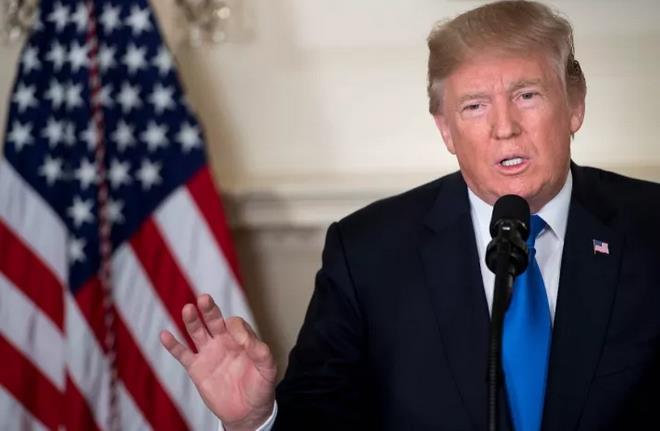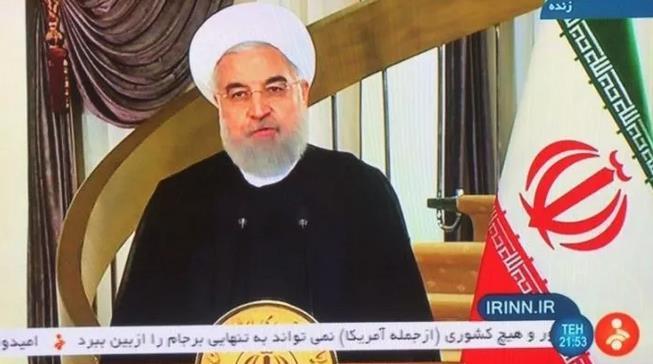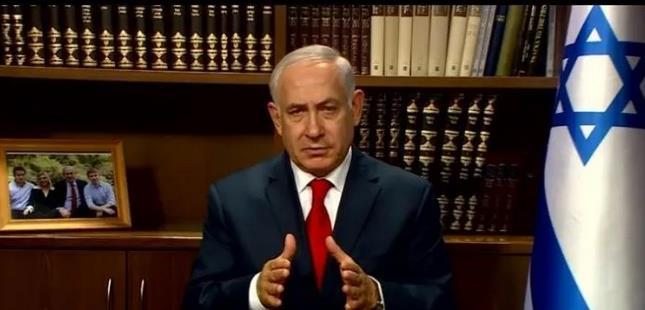Just a few hours ago, Trump’s speech triggered a shock in the international community.
CCTV News:On October 13th, local time (the early morning of 14th Beijing time), US President Trump made a speech on Iran’s policy. He said that the United States would not withdraw from the Iranian nuclear agreement, but would "not certify" Iran’s compliance with the Iranian nuclear agreement. Trump said that Iran violated the spirit of the Iranian nuclear deal and the agreement was no longer in the national interest of the United States. The United States will take further sanctions against Iran’s Revolutionary Guards, and the White House will also push for legislation in Congress in order to further strengthen the effectiveness of the nuclear agreement or impose stricter sanctions on Iran.
Although Trump’s speech was expected, it still triggered a shock in the international community, and leaders of Britain, France, Germany, Iran, Israel and other countries responded one after another.
Trump has repeatedly let the wind out of the Iranian nuclear deal

In July 2015, Iran reached a comprehensive agreement on the Iranian nuclear issue with six countries, namely, the United States, Britain, France, Russia, China and Germany. According to the agreement, Iran promises to limit its nuclear program, and the international community will lift sanctions against Iran. Since Trump came to power, he has repeatedly announced his intention to withdraw from the Iranian nuclear deal, which has led to the tense situation between the United States and Iran again.
Although Trump did not directly announce his withdrawal from the agreement, he gave the US Congress 60 days to decide whether to re-impose economic sanctions on Iran and modify a series of "defects" in the agreement. He warned that if the agreement was not mended, he might withdraw from the Iranian nuclear deal. Re-imposing sanctions on Iran will mean the rupture of the Iranian nuclear deal. Because if the US Congress decides to re-impose sanctions on Iran, then the United States will violate the terms of the nuclear agreement, which may lead to the collapse of the agreement.
Paul ryan, Speaker of the US House of Representatives, announced his support for Trump’s proposal to reassess the Iranian nuclear deal and will cooperate with him. The Iranian nuclear deal is regarded as an important diplomatic achievement during the Obama administration. During the campaign, Trump once said that the Iranian nuclear deal was "the worst agreement signed in American history" and vowed to tear it up.
France, Germany and Britain issued a joint statement expressing concern.
On the evening of 13th local time, after US President Trump delivered a speech on the Iranian nuclear agreement, the Elysee Palace, the French presidential palace, issued a joint statement by the heads of state and government of France, Germany and Britain. The statement pointed out that France, Germany and Britain expressed concern about President Trump’s statement that "Iran does not certify" its compliance with the nuclear agreement.

The statement stressed that the three countries will firmly safeguard the Iranian nuclear agreement and hope that all parties to the agreement can fully abide by the agreement, which is in line with their common national security interests. The statement also said that the Iranian nuclear agreement is the result of 13 years of diplomatic efforts and is a major progress in preventing Iran’s nuclear program from going astray. Therefore, France, Germany and Britain hope that the US government and Congress can take into account the possible impact on the national security of the United States and its allies before making any decision that may damage the agreement.
The statement also pointed out that France, Germany and Britain are equally worried about Iran’s current ballistic missile program and regional actions. The three countries are ready to take new measures to deal with it through close cooperation with the United States and other relevant parties. The three countries hope that Iran can participate in constructive dialogue, stop activities that create unstable factors and find a solution through consultation.
Mogherini: The EU firmly supports the Iranian nuclear agreement.
Mogherini, the EU’s High Representative for Foreign Affairs and Security Policy, held a press conference after Trump’s speech. Mogherini said that the Iranian nuclear agreement is working well and is effectively preventing Iran from developing nuclear weapons. The EU firmly supports the Iranian nuclear agreement.
Mogherini also said that the Iranian nuclear agreement was signed by Britain, France, Germany, Russia, China and the European Union, and no country can unilaterally decide to terminate the agreement. Mogherini called on the countries concerned to act together to safeguard this historic agreement.
Iran: The US move will make the international situation unstable.
Iranian President Rouhani said that the United States has never been so isolated, and the United States cannot change the Iranian nuclear deal. Iranian Speaker Ranjani said that any move by the United States against the Iranian nuclear deal would be an "insult" to the United Nations, because the agreement was supported by the United Nations. He also said that Iran will have the right to take its own actions as long as the agreement is revised, and threatened that the US move may make the international situation unstable.

Prime Minister: Welcome to Trump’s speech on the Iranian nuclear issue.
On the evening of 13th local time, after US President Trump announced that he "refused to confirm Iran’s compliance with the Iranian nuclear deal", Israeli Prime Minister Benjamin Netanyahu issued a statement via video saying that he welcomed Trump’s decision.
In a video posted on social media, Netanyahu said that Trump "bravely confronted the Iranian terrorist regime". He said that Trump’s decision can create opportunities for "resolving this bad agreement and confronting Iran’s provocation and its support for terrorism", otherwise Iran will have a nuclear arsenal within a few years.

Trump’s "non-certification" of the Iranian nuclear agreement undermines the credibility of Western countries
According to the BBC report, the refusal of the United States to certify Iran’s compliance with the nuclear agreement may bring obstacles to the relationship between Britain and the United States and put Britain’s foreign policy in a quagmire. On the issue of Iran’s nuclear agreement, the United States believes that Iran has not completely restricted its nuclear program and Iran should continue to be sanctioned. The EU countries such as Britain, France and Germany believe that Iran has fully fulfilled all the contents of the nuclear agreement.
Analysts said that in major international affairs, Trump reneged and repeatedly broke the traditional rules of the international order, which not only affected the relationship between Britain and the United States and Europe, but also affected the overall credibility of the western world. British policymakers are worried that Trump’s intention to tear up the Iranian nuclear agreement is tantamount to sending a signal to other countries that it is not worth trading with the United States on major issues because they will change their minds and tear up the agreement at any time.